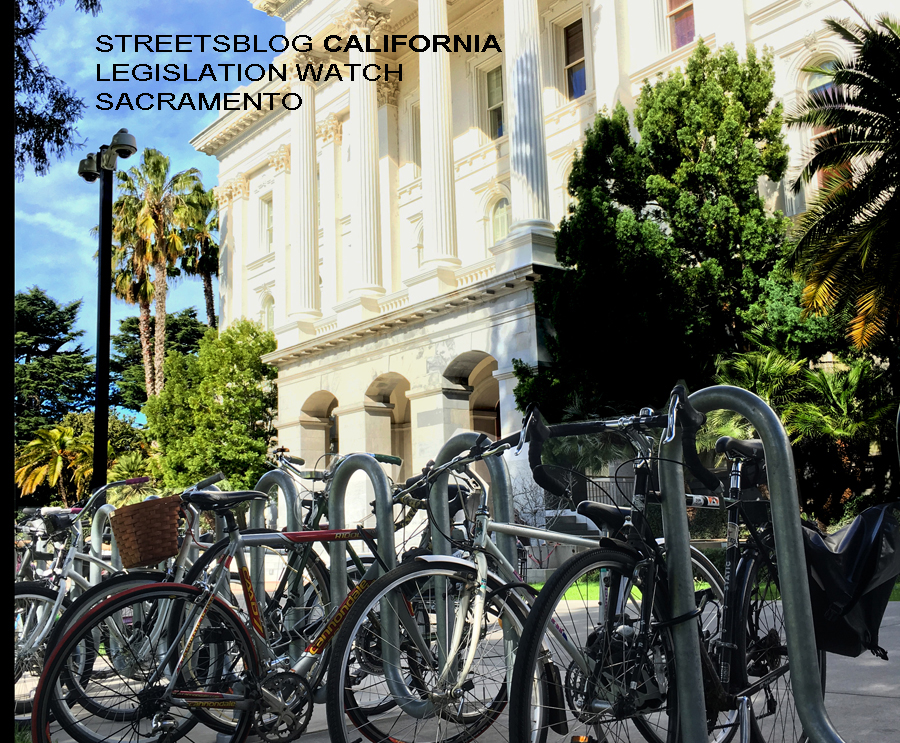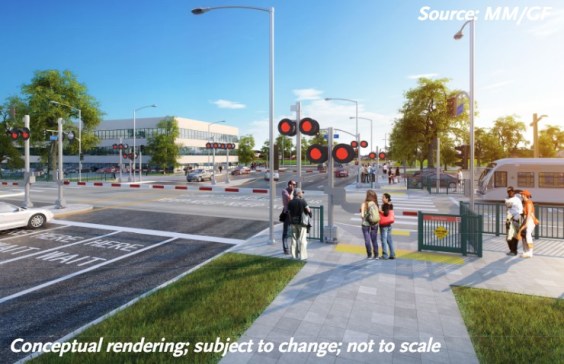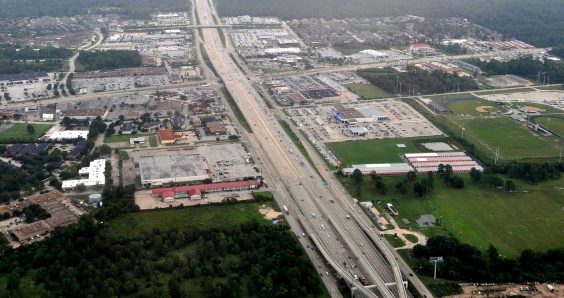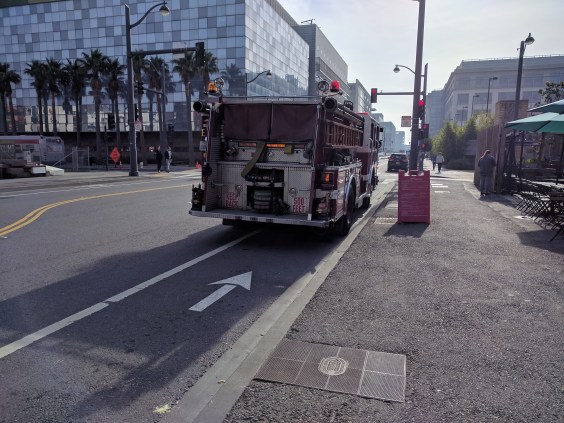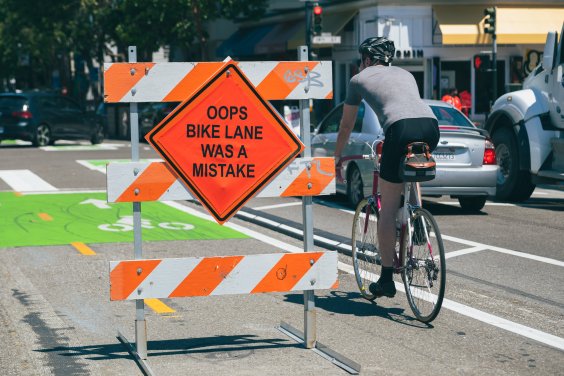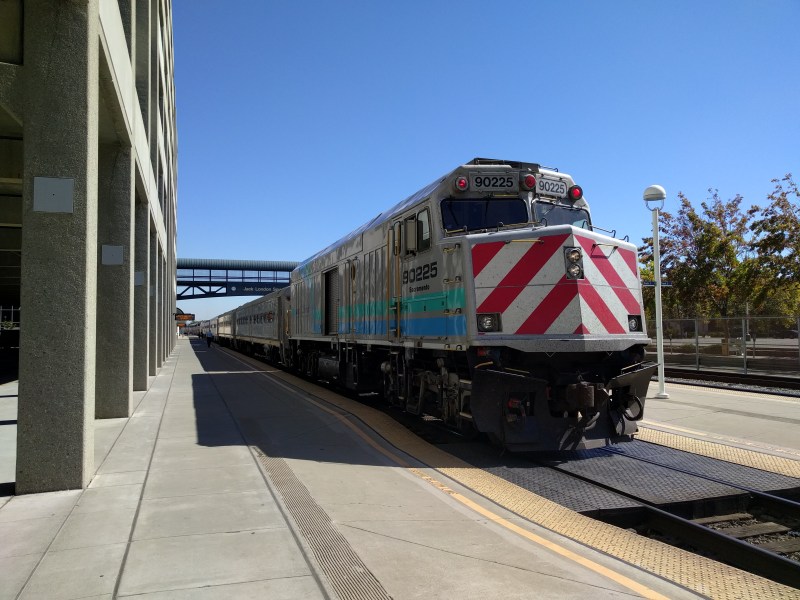Note: GJEL Accident Attorneys regularly sponsors coverage on Streetsblog San Francisco and Streetsblog California. Unless noted in the story, GJEL Accident Attorneys is not consulted for the content or editorial direction of the sponsored content.
Safety for Biking and Walking in General Plans
Senator Anthony Portantino (D-Glendale), a self-professed "recent avid cyclist" who started bicycling during the pandemic, has authored a bill that would require cities and counties to give the safety and bicycle riders and pedestrians the attention it deserves.
"Despite decades of rhetoric, our streets have grown less safe," he told the Senate Transportation Committee on Tuesday. "We can help reduce traffic violence; we just need the will to do it."
His bill, S.B. 932, would require cities and counties to map out the places where bike riders and pedestrians experience high rates of injury in their General Plans. But not just map: they would also be required to take action to reduce traffic fatalities, specifically emphasizing safety for people using "human-powered" transportation.
And it includes a statement of intent to create a grant program to help make this happen, but so far with no details.
Recognizing that having a plan - even with promised funding - isn't enough by itself, S.B. 932 includes a number of provisions that committee members struggled with. It would require cities and counties to begin improvements within two years of amending their General Plans, and would give them twenty years act on their fatality-reduction plans.
To add teeth, it would also clarify that if they don't take action, anyone injured in a crash could have a "cause of action for failure to comply with these provisions" - in certain specified counties. That is, this "private right of action" would apply in Alameda, Contra Costa, Los Angeles, Orange, Riverside, Sacramento, San Bernardino, San Diego, San Francisco, and Santa Clara.
While an argument can be made that any city or county that fails to provide safe infrastructure for bicycle riders and pedestrians are already at risk of being sued when people are injured because of it, writing this "private right of action" into the bill had several committee members squirming.
Senator Bob Wieckowski asked how it related to the timing of General Plans themselves. That is, while cities are supposed to update their General Plans regularly, and S.B 932 would require them to do so by June of 2024, "Just to note that Los Angeles, for example, hasn't amended its General Plan in forty years," he said. "Does this 'private right of action' mean that as of January 1, every bike enthusiast can sue L.A.?"
Portantino responded that he would accepting the recommendations of the Transportation Committee, which would put a sunset date on the private right of action. It might be better, he said, to base the sunset date on the year each city amends its General Plan.
But the point is to force cities and counties to update their plans, to incorporate safety for sustainable transportation, to give them resources to follow through, and then hold them accountable if they don't do so.
Senator Wieckowski was also worried that it could backfire in another way, by potentially forcing cities to divert resources towards updating General Plans that they have not amended in years. "How are they going to do it in eighteen months?" he asked, implying that the resources being diverted might come from "building a bike lane, perhaps."
"My goal is not to have a planning document sit on the shelf," said Portantino. "I am happy to discuss this, and to take your input, but I don't want to make a document that isn't implemented... we've all been in these situations where these plans gather dust," he added. "We need a hammer."
To anyone who objected that this would cost too much money, Portantino had one reply: "How can you put a price on a person's life?"
"We're trying to make cities understand... that our priorities need to change. We need to be thinking about alternative forms of transportation," said Portantino.
The committee passed the bill 5-2. It had already passed the Senate Governance and Finance committee; its next stop will be the Senate Floor.
Seamless Transit in San Francisco Bay Area
Another notable bill that passed the same committee - there were others, to be discussed later - was S.B. 917, the Seamless Transit bill to force Bay Area transit agencies to collaborate on a transit system that makes sense from a rider's perspective. The bill, from Senator Josh Becker (D-San Mateo), calls for better mapping of the various transit options, making real time transit information easily available to riders, creating an integrated far structure including no-cost transfers, and creating a connected network plan to help guide future investments by all transit agencies.
"Right now, it is too hard to get from point A to point B in the Bay Area," said Becker. "Riders should be able to look and go; there should be better coordination between ferries, trains, and buses."
"This bill will move forward conversations that have been ongoing for a long time," but in a focused way, "rather than the ad hoc way" that is currently happening, he said.
A representative from BART, one of the agencies affected by S.B. 917, said that the bill needs to be amended before they could support it. BART is concerned about losing control over its ability to set its own fares.
A.B. 917 passed 9-0 and will now go to the Senate Floor.
